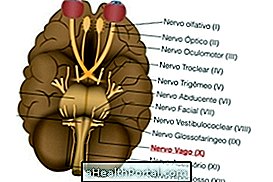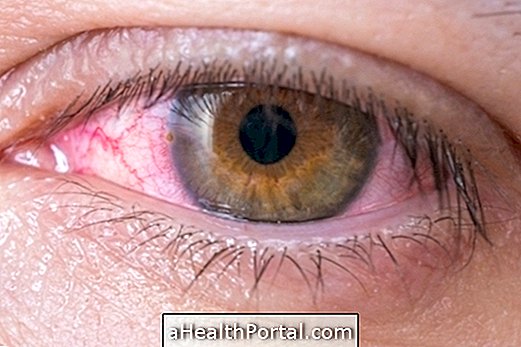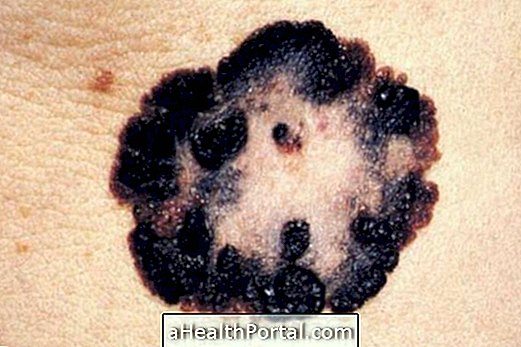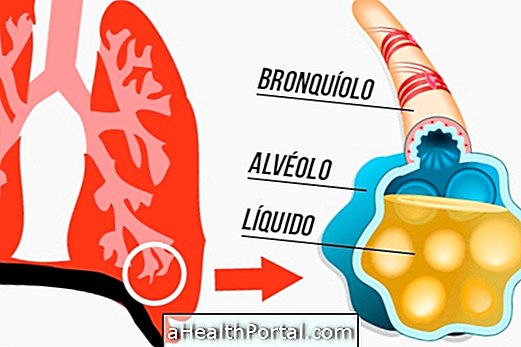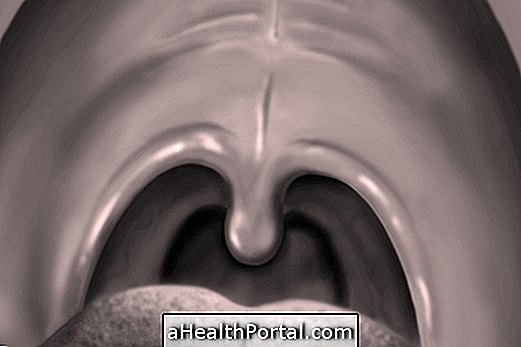Neurosyphilis is a complication of syphilis, and arises when the bacterium Treponema pallidum invades the nervous system, such as the brain, meninges and spinal cord, usually after many years of living with the infection without proper treatment, causing signs and symptoms such as memory failure, depression, paralysis or convulsions, for example.
To treat neurosyphilis the doctor will indicate antibiotic medications, such as crystalline Penicillin, in the vein for approximately 10 to 14 days. After a few months of treatment, it will be necessary to monitor the levels of infection through the lumbar puncture of the cerebrospinal fluid, in order to evaluate if there was a cure.
Syphilis is a chronic infectious disease acquired mainly by sexual contact, and can evolve in different ways along different stages, including the formation of genital ulcers, skin spots or fever, for example, with serious changes such as heart or neurological problems occur in later stages of the disease. Learn more about the phases of syphilis in All about syphilis.

Main symptoms
The first symptoms of neurosyphilis usually appear 5 to 20 years after infection with syphilis only when the infected person has not received adequate treatment in this period. Some of the main symptoms include:
- Disorders of vision and blindness,
- Memory and dementia failures,
- Change in gait,
- Depression,
- Urinary incontinence,
- Irritability,
- Headache,
- Mental confusion,
- Paralysis,
- Convulsions,
- Stiff neck,
- Tremors,
- Weakness,
- Numbness in the legs and feet,
- Difficulty concentrating,
- Progressive general paralysis,
- Changes in personality,
- Pupils not responsive to light,
- Change in nerve reflexes.
As the signs and symptoms of neurosyphilis are very varied, this disease can confuse the doctor by mimicking various neurological diseases, such as Alzheimer's, multiple sclerosis, meningitis, brain tumor, Parkinson's disease, stroke or psychiatric diseases such as schizophrenia and depression, for example .
How to confirm
The diagnosis of neurosyphilis is made by analysis of the cerebrospinal fluid, or cerebrospinal fluid, which demonstrates changes suggestive of the disease, and is acquired through lumbar puncture. Understand what it is for and how the lumbar puncture test is done.
Imaging tests, such as computed tomography, magnetic resonance imaging, and cerebral angiography, are well indicated to evaluate brain changes and disease progression. Blood tests, such as VDRL and FTA-ABS, are serological tests that help identify antibodies related to syphilis.
How is the treatment done?
Treatment for neurosyphilis should be performed at the hospital to take daily injections of antibiotics prescribed by the doctor, such as crystalline Penicillin G or Ceftriaxone, for about 10 to 14 days.
After treatment for neurosyphilis, your doctor can do blood tests at the 3rd and 6th month, as well as once a year for 3 years. In addition, lumbar punctures can be made every 6 months to confirm healing of the infection.
See also how the treatment is done in the different stages of syphilis.

Possible Complications
Although most neurosyphilis symptoms are reversible, when the treatment is not done properly, the disease can cause severe changes in the central nervous system, resulting in sequelae that include:
- Paralysis of regions of the body;
- Loss of vision;
- Dementia, persistent memory or behavior changes
- Deafness;
- Sexual impotence;
- Psychosis and other psychiatric disorders;
- Movement Disorders
- Urinary incontinence;
- Constant pains.
The complications of neurosyphilis depend on how the disease has evolved in each person, the time of infection and the waiting time until the beginning of treatment.
Prevention of neurosyphilis
Neurosyphilis is an infection that can have serious health consequences and should therefore be prevented by appropriate treatment of syphilis. Thus, patients with syphilis should follow the doctor's instructions, preventing the infection from reaching the nervous system, especially in patients with weakened immune systems.
The prevention of syphilis is done with the use of condoms during intimate contact, and care is taken to avoid contamination through blood and secretions, not sharing contaminated materials such as syringes and needles, as well as follow-up adequate prenatal care in the case of pregnant women. Check out more guidance on how transmission happens and how to prevent syphilis.
